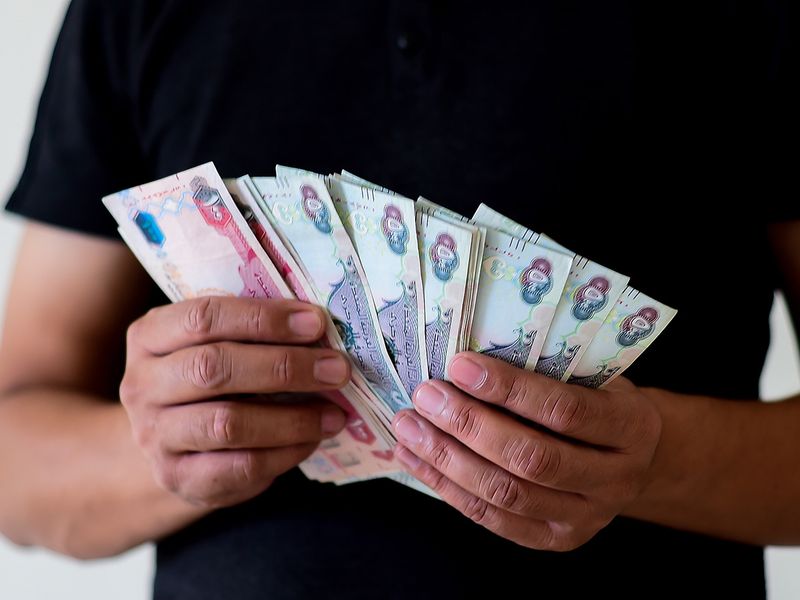
Dubai: ‘Scarcity marketing’ is marketing that capitalises on a customer’s fear of missing out on something. It’s based on the psychological principle that people want what is difficult to acquire.
Ever wondered why stores always have sales that are ‘ending soon’, or why they offer discounts that expire on a certain date? You may also recall seeing a similar sign that says, ‘hurry while stocks last’?
“What you may not know is often times, some retailers only create a limited range of products in order to create an unusually higher demand for a certain product,” explains Abu Dhabi-based retail consultant Maddy Ivan.
“That sense of scarcity has a way of making us forget how to think rationally, and marketers are aware of this. So, it's important to understand how scarcity marketing tricks you into spending more money, and what you can do to fight it.”
Understanding scarcity marketing
The point of scarcity marketing is to make you fear that you'll lose out on something you want. In effect, scarcity marketing is triggering your sense of loss aversion.
This is the cognitive bias that causes us to feel a loss more acutely than we do a gain. When our aversion to losses is triggered, we'll work harder to avoid kicking ourselves for losing something than we would work to gain something we want.
So how scarcity marketing essentially works is that it pairs a gain (whatever it is we want to buy) with the fear of losing that gain.

There are two popular strategies retailers use scarcity marketing to make you keenly feel loss aversion. Being aware of these tactics when spending money at retail outlets will help curb spending, financial planners agree.
• Having a small amount of inventory
This was what you will often see with massive sales events held by big retailers. Most often, the sale flyers will promise some great deals, but they will all also sport the caveat, "supplies are limited!"
This also happens with online purchases. You might have noticed that e-commerce stores often let you know that only a fixed number of items are left, so you should hurry and make that purchase.
Similarly, if you are searching for anything from concert tickets to vacation rentals, the website will share with you just how many other people are interested in the tickets or weekend getaway — thereby making you fear missing out.
• Putting an expiration date on a purchase
You'll also see these kinds of expiration date strategies on everything from online discount offers to ‘one day only’ sales.
This implies that you must grab the purchase now before it goes away. Have you ever noticed that some ticketing outlets ask you to finalise your purchase in two minutes?
The site even provides you with a countdown clock of that two-minute time frame before "your tickets are released for others to buy".
The portals offer a countdown to make it fair for all fans to be able to purchase tickets, but the short time frame plus the reference to "your tickets" are all set up to maximise your sense of loss aversion.
“Most often companies that provide a timer for your purchase are counting on your inability to think rationally about a purchase when you feel as if time is ticking away,” Ivan added.

For example, diamonds are more valuable than rocks because diamonds are not as abundant. This ‘scarcity heuristic’ is a mental shortcut that places a value on an item based on how easily it might be lost, especially to competitors.
“The scarcity heuristic stems from the idea that the more difficult it is to acquire an item the more value that item has. In many situations an item’s availability, its perceived abundance, is used to quickly estimate quality and/or utility,” explained Vicki Reynold, an independent financial therapist based in the UK.
“These perceptions of scarcity can lead to irregular consumer behaviour that at times may be atypically competitive. This can lead to bias.”
How do you outsmart such a ‘scarcity marketing’ strategy?
“Although salespeople and marketers know how to use your sense of loss aversion to their advantage, that doesn't mean you have to fall it,” Reynold added.
Here are some tricks that Reynold and Ivan recommend consumers for keeping scarcity marketing from removing money from your wallet.
• Buy gifts early
Retails experts view that part of the reason why some limited-edition items get incredibly popular is because of the timing of their release — holiday shopping season.
So, the key is to buy plan and purchase gifts early, so you do not feel the same kind of desperation for let’s say, the season's trendiest toy.
Money planners add that being deliberate about choosing and paying for gifts well before the shopping season frees you from the frenzied thinking that this item would bring when stock is limited.

• Institute a 24-hour purchase rule
“When we're in the grips of loss aversion, whatever it is we feel like we need to buy seems urgent. The best way to release yourself from that artificial urgency is to institute a 24-hour rule,” noted Reynold.
It simply means that if you're not sure if you should buy something, then wait 24 hours to see if you still want it as badly after a full day has passed.
Waiting 24 hours to decide to buy is not going to make a difference in most purchases. As is the common adage: "In the space between thought and action resides judgment. Give yourself some space to consciously think."
Key takeaways
In situations when others are directly vying for scarce resources, the value we assign to objects is further inflated. Advertisers commonly take advantage of this by marketing products as ‘hot items’ or by telling customers those certain goods will sell out quickly.
“To be out of stock is to lose a sale or, worse, to lose a sale to a competitor. But marketers also understand that, by using the illusion of scarcity, they can accelerate demand. This false scarcity encourages us to buy sooner and perhaps to buy more than normal,” Ivan further noted.
“The more the scarcity of an item increases, the more the item increases in value, and the greater the urge to own it. Whenever choice is limited or threatened, the human need to maintain a share of the limited commodity makes us crave it even more,” added Reynold.
Scarcity marketing is the idea of limiting the supply of a product, whether it be through restricting availability to a certain time frame or decreasing production – oftentimes both. The principle is sound – we all want what we can't have and love to flaunt when we have something others don't.
Although the concept is used by entrepreneurs to effectively increase sales of their business, as a shopper you can prudently steer away from such a marketing gimmick by timing your purchases accordingly and not rushing to make a purchase.








